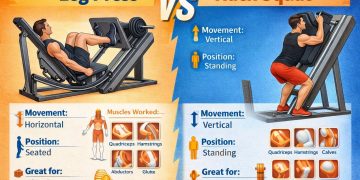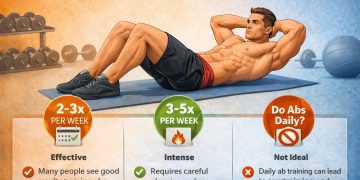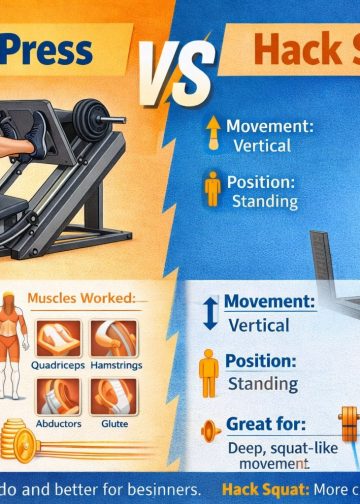Why Veterans Stick to a Plan
Military training teaches structure. It’s not optional. Wake up at 0500. Make your bed. Complete the mission. There’s no “maybe later.” That mindset doesn’t fade after service. It shows up in how many veterans approach fitness and health. The routine sticks.
Veterans tend to follow plans with precision. They don’t skip steps. That’s powerful when applied to daily wellness. A 2022 study from the Journal of Behavioral Medicine found that veterans were more likely to stick with a fitness program long-term compared to non-veterans. Why? The answer: habit systems. They learned early how to do hard things even when they didn’t want to.
From Field Gear to Gym Bag
Military routines start with gear. Everything in its place. The same rule works in wellness. Prepare your gym clothes the night before. Pack your meals. Don’t leave anything to chance.
Andres Ruocco, a former U.S. Army Supply Specialist, remembers this well. “If we didn’t have our packs prepped, we’d be the reason a mission failed,” he said. “So now, if I miss a workout, I know it’s not just motivation. It’s poor prep.” He lays out his weights and shoes before bed. It sounds simple. It is. That’s the point.
The 3-Goal Rule
Most people set vague goals. “Be healthier” doesn’t mean much when you're tired. Veterans break big ideas into small wins. One strategy Ruocco teaches his clients is the three-goal rule: one physical, one mental, one social.
Physical could be a 20-minute workout. Mental might be reading five pages of a book. Social might mean checking in with a friend. It’s basic, but that’s the beauty. It lowers decision fatigue. You wake up and know exactly what to do.
Show Up, Even If You Don’t Feel Like It
Military training doesn’t ask how you feel. You still have to march, train, check equipment. That mindset helps with consistency. In civilian life, many people wait until they’re “motivated.” Veterans know the truth—motivation is unreliable.
Ruocco said, “Most days, I didn’t feel like training in the Army. You still do it. Now, I apply that to everything else. If it’s on the list, I do it. Period.”
This way of thinking keeps excuses low and momentum high.
Use Structure, Not Willpower
Willpower fades. Structure lasts. That’s why military routines are so effective. Meals happen on schedule. Exercise is not random. There’s a system.
Here’s how to apply that to your life:
- Create a morning checklist:Wake up, drink water, stretch, walk. Do the same five steps every day.
- Block your workouts:Put them on your calendar. Don’t “try to fit them in.”
- Meal prep once a week:Sunday or whatever day works. No plan means more fast food.
A study from the American Journal of Preventive Medicine found that people who meal prep are 50% more likely to stick to a healthy diet. Planning works. Use it.
The Power of Accountability
In the military, no one wants to be the one holding the team back. That same peer accountability works for wellness. Share your goal. Text a friend when you’ve done it.
Ruocco used to work in veteran intake support. He noticed that most of the time, veterans needed someone to listen. Not a lecture. Just a check-in. He brings that into his coaching. “I tell my clients, I won’t nag. But I will notice if you disappear. And I’ll ask why.”
You can recreate this by setting up simple check-ins. Create a group chat. Or just one person who gets your update each day.
Use Wearables Like You’d Use a Map
The military tracks everything—ammo, food, water, hours. In wellness, that data comes from wearables. Steps, heart rate, sleep. You don’t need fancy devices. Even a free pedometer app works.
Don’t obsess. Just use it like a compass. You wouldn’t wander into the woods without a map. Don’t wander into your week without knowing how you’re doing.
Use the info to tweak. Too little sleep? Maybe swap the hard workout for a walk. Track, adjust, repeat.
Break the Day Into Missions
Veterans know how to work in shifts. There's the morning op, the afternoon patrol, the night check. That helps manage energy.
Try it like this:
- Morning Mission:Move your body. Stretch, walk, lift—something.
- Midday Mission:Eat with intention. No eating in the car or scrolling mindlessly.
- Evening Mission: That means winding down, not just collapsing.
Every mission should feel doable. That creates wins. Wins create confidence. Confidence keeps you going.
Failure Isn’t the End
In the military, mistakes are expected. But so is learning from them. If you skip a workout, eat junk, or sleep poorly—don’t spiral. Adjust.
Ruocco says, “I dropped out of college the first time. I didn’t know what I wanted. I went back later and finished with purpose. That’s how I look at bad days now. It wasn’t failure. It just wasn’t the right approach—yet.”
What You Can Do Starting Today
Don’t try to overhaul your life in one go. That never works. Here are five small changes that build real momentum:
- Set three daily goals—physical, mental, social.
- Prep your gym gear the night before.
- Block time on your calendar for movement.
- Check in with one person a day.
- Stick to a basic morning routine.Even 10 minutes is enough.
These habits don’t require special skills. They just need follow-through. Veterans already know this. Civilians can learn it.
Final Thought
Military discipline doesn’t mean yelling or punishment. It means structure, accountability, and doing what matters—even when it’s hard. You don’t have to serve in the military to apply those lessons. Start with one small action. Then another. Keep going. That’s how real change happens.
























